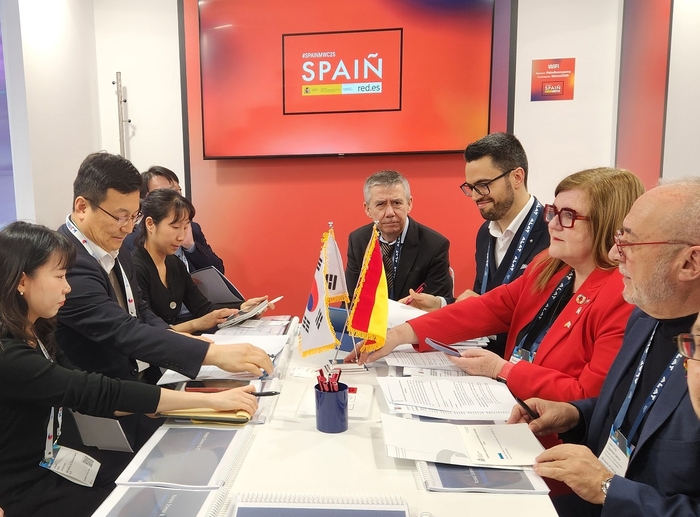
The 2nd Korea-Spain Science and Technology Joint Committee
The Ministry of Science and ICT held the 2nd Korea-Spain Science and Technology Joint Committee in Barcelona, Spain, on the 4th.
The Korea-Spain Science and Technology Joint Committee is a consultative body held following the science and technology agreement signed in 1976 and the memorandum of understanding on scientific and technological cooperation signed in 2015. The 1st committee was held in Madrid in 2017, and the 2nd is being held in Barcelona after eight years.
At this meeting, South Korea was represented by Hwang Sung-hoon, Director of International Cooperation at the Ministry of Science and ICT, along with representatives from the National Research Foundation of Korea, Korea Institute of Science and Technology Information (KISTI), and the Korea Institute of Science and Technology (KIST). Spain was represented by Eva Ortega Paíno, Assistant Secretary of the Ministry of Science and Innovation, along with representatives from the Spanish National Research Agency, National Research Council, and Carlos III National Health Institute.
The two countries discussed four areas: advanced biotechnology, artificial intelligence (AI), supercomputing, and the development of natural material technologies based on smart farming.
The Korean side proposed a joint research initiative combining domestic CAR-X technology and gene editing technology with Spain’s clinical trial and regulatory experience.
In the AI sector, the two countries explored mutual recognition of their basic AI laws and committed to leading roles in establishing global AI governance through cooperation.
In the field of supercomputing, the current status of resource-sharing technology development using KISTI’s 5th generation supercomputer “NURION,” HPC software, and cloud technology was introduced, along with quantum emulator technology development. Following this, discussions were held on holding a joint workshop with Barcelona Supercomputing Center, personnel exchanges, and sharing quantum-HPC hybrid research case studies.
Additionally, a joint research initiative between KISTI and the Spanish Natural Resources Agriculture and Biology Research Institute (IRNAS) was discussed, with an agreement to collaborate for the future exchange of personnel and technology, and signing a memorandum of understanding for joint research promotion.
The meeting also proposed preparing a budget for implementing and executing joint research and cooperation in the technology fields discussed at this committee, in line with Korea joining Horizon Europe, suggesting the signing of a memorandum of understanding.
Hwang Sung-hoon, Director of International Cooperation, stated, “I hope that the discussions at this joint committee can overcome the eight-year gap and lead to tangible results through continued Korea-Spain cooperation.”

